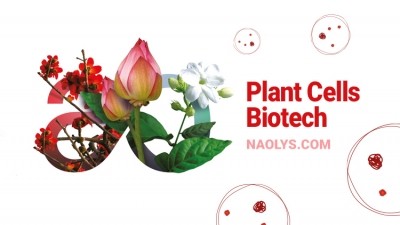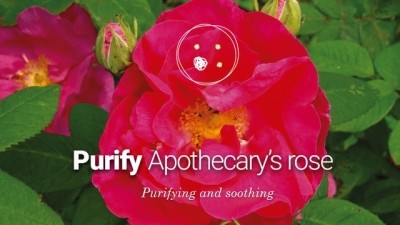Sponsored Link
Exosomes: Passing Trend or Transformative Reality?

Exosomes, microscopic vesicles naturally present in abundance within Plant Cells, have garnered significant attention within the scientific and cosmetic communities due to their pivotal role in cellular communication. These small, lipid-bilayer-enclosed structures serve as messengers, facilitating the exchange of molecular information between cells. The biological functions of exosomes hinge on their bioactive cargo, encompassing proteins, nucleic acids, and lipids, which are transported and delivered to target cells.
Whole Plant Cells, intricately designed by nature, are rich in diverse components, such as primary and secondary metabolites. These components contribute to the holistic and advanced approach of skincare and beauty. At Naolys, the innovative approach stands out by commercializing the whole, native, Plant Cells, preserving 100% of the cellular content, including exosomes and other metabolites. This patented biotechnology offers a comprehensive and natural solution for maximum efficacy.
The size of exosomes typically ranges from 30 to 150 nm, whereas a Plant Cell is in the micrometer range, making it 1,000 times larger. This dimensional difference gives the Plant Cell the ability to hold a much greater amount of material, without worrying about diffusion or penetration thanks to their lipid-bilayer membrane. The inherent power of Plant Cells, elevate formulations, meeting the high standards set by both scientific research and consumer expectations.
Native Plant Cells also possess the unique ability to divide, providing a considerable advantage over exosomes generated by other entities that cannot reproduce autonomously. Plant cells produce exosomes, yet exosomes are incapable of generating plant cells. This capacity for division significantly contributes to a continual production of active components, facilitated by Naolys’ eco-conscious biotechnology. This not only enhances the sustainability and stability of cosmetic products but also underscores a commitment to environmentally responsible practices. Embark on your journey where science meets nature to create cosmetic products of exceptional quality.
Join the conversation at the PCHI exhibition, held at the Shanghai World Expo Exhibition and Convention Center, from March 20th to 22nd, 2024, and stop by booth 2N24 to meet our local Chinese distributor.

![HairRevive [MM+Zn], a powerful solution combating hair aging thanks to Musk Mallow and Zinc](/var/wrbm_gb_food_pharma/storage/images/_aliases/wrbm_medium/publications/cosmetics/cosmeticsdesign-asia.com/product-innovations/hairrevive-mm-zn-a-powerful-solution-combating-hair-aging-thanks-to-musk-mallow-and-zinc/16555616-1-eng-GB/HairRevive-MM-Zn-a-powerful-solution-combating-hair-aging-thanks-to-Musk-Mallow-and-Zinc.jpg)

![Inner Renewal [CC+AA] to revitalize damaged skin cells](/var/wrbm_gb_food_pharma/storage/images/_aliases/wrbm_medium/publications/cosmetics/cosmeticsdesign.com/product-innovations/inner-renewal-cc-aa-to-revitalize-damaged-skin-cells/10945565-1-eng-GB/Inner-Renewal-CC-AA-to-revitalize-damaged-skin-cells.jpg)
